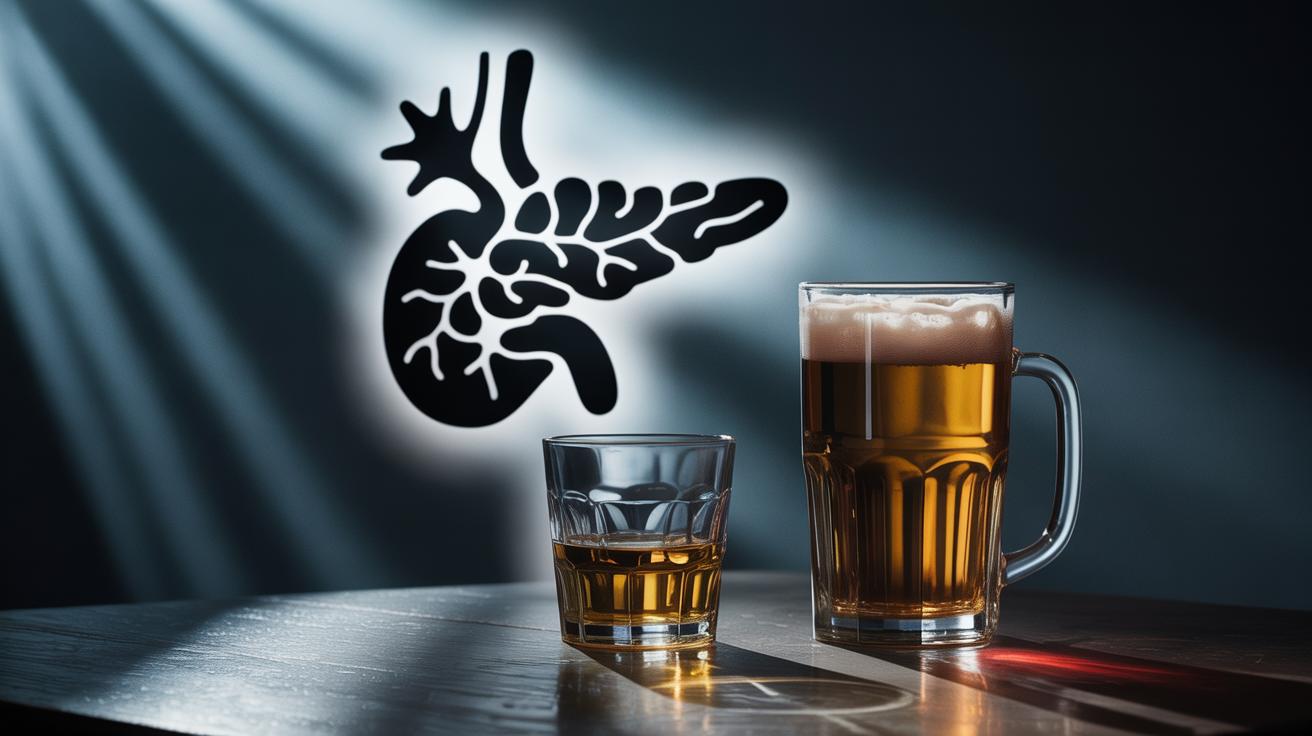What You Need to Know
- 🍺 Beer and Spirits Warning: New research links these alcoholic beverages to an increased risk of pancreatic cancer.
- 📊 Alarming Statistics: The study shows that consuming over 2 ounces of alcohol daily can raise pancreatic cancer risk by a staggering 36%.
- 🩺 Broader Cancer Concerns: Alcohol is already linked to seven other types of cancer, including breast and liver cancers.
- 🔬 Research Scope: Conducted with 2.5 million participants over 16 years, the study underscores the urgent need for further investigation.
- 🚨 Public Health Implications: These findings highlight the necessity for increased awareness and preventive measures against alcohol-related cancers.
Alcohol consumption has long been a topic of debate in health circles, with its effects on various aspects of well-being being continuously scrutinized. Recent findings from the International Agency for Research on Cancer (IARC) have added another layer to this complex issue. The study highlights a potential link between the consumption of certain alcoholic beverages, specifically beer and spirits, and an increased risk of pancreatic cancer. This revelation comes on the heels of previous advisories linking alcohol to seven other types of cancer. As we explore these findings, it becomes imperative to understand the broader implications for public health and personal lifestyle choices.
The Study: A Closer Look at Alcohol and Cancer
In a groundbreaking study published in the journal PLOS Medicine, the IARC classified alcohol as a carcinogen, emphasizing its association with an increased risk of pancreatic cancer. The research involved a cohort of 2.5 million participants with a median age of 57, tracked over a span of approximately 16 years. During this period, 10,067 cases of pancreatic cancer were documented. The study revealed that each additional 0.35 ounces of ethanol consumed per day was linked to a 3% increase in pancreatic cancer risk. Notably, the risk was associated with beer and spirits, but not wine. These findings underscore the importance of understanding the specific types of alcohol that contribute to cancer risk and raise critical questions about the safety of alcohol consumption.
Pancreatic Cancer: A Deadly Risk
Pancreatic cancer is known for its aggressive nature and poor prognosis, making the findings of this study particularly concerning. The disease often goes undetected until it reaches an advanced stage, resulting in high mortality rates. According to the study, women who consumed 0.5 to 1 ounce of alcohol per day had a 12% increased risk, while men consuming 1 to 2 ounces per day faced a 15% higher risk. Those exceeding 2 ounces daily encountered a staggering 36% increase in risk. These statistics highlight the urgent need for awareness and prevention strategies, as well as further research to identify effective interventions to reduce alcohol-related cancer risks.
Beyond Pancreatic Cancer: Alcohol’s Broader Impact
While the study focuses on pancreatic cancer, it is essential to consider alcohol’s broader impact on overall health. The Surgeon General’s advisory had previously linked alcohol to seven other types of cancer, including breast, colorectal, esophageal, liver, mouth, throat, and laryngeal cancers. This comprehensive list underscores the multifaceted risks associated with alcohol consumption. Experts emphasize that no level of alcohol intake is entirely safe when it comes to cancer risk. The acknowledgment of alcohol as a modifiable risk factor offers individuals the opportunity to make informed choices about their consumption habits, potentially reducing their vulnerability to these life-threatening diseases.
Public Health Implications and Future Research
The findings from this study have significant implications for public health policy and future research endeavors. As alcohol consumption is a common social and cultural practice, understanding its health risks is crucial for developing effective public health campaigns and guidelines. The study’s limitations, such as its focus on mid-to-late adulthood and limited representation of Asian cohorts, highlight the need for further research. Future studies should explore the long-term effects of alcohol consumption across different demographics and investigate the role of specific drinking patterns, such as binge-drinking, in cancer development. Empowering individuals with information and resources is essential for reducing the burden of alcohol-related diseases.
As we continue to uncover the intricate relationship between alcohol and cancer, individuals are faced with critical decisions regarding their consumption habits. The study’s findings reinforce the notion that even moderate drinking carries potential risks. With thousands of Americans diagnosed with alcohol-related cancers annually, the need for awareness and preventive measures is more pressing than ever. How will these revelations shape your approach to alcohol consumption, and what steps can society take to mitigate the risks of alcohol-related diseases?
Did you like it?4.6/5 (26)






12 comments
Mia
Oh no, there goes my Friday night plans! 😩
isaiah
Really informative post! Makes me wonder about the long-term effects of casual drinking.
Socks
What about non-alcoholic beer? Is it a safer option?
ella
Isn’t it amazing how many things we enjoy are actually harmful to us?
kylie
Time to say goodbye to my weekend margaritas! 🍹
Kevin
Does this study consider the role of diet and lifestyle in cancer risk?
Skylar_Unity2
Never thought beer and spirits could be so deadly. Thanks for the info!
valeria
Great, just when I thought I had my life choices figured out! 😅
diego_phoenixfire
So does this mean wine is safer, or is it just as risky?
Isaiah
Guess it’s time for me to switch to grape juice. 🍇
camilaphoenixfire4
Wow, 36% is a significant increase. Are there any safe levels of alcohol consumption?
NathanDelta1
Thanks for sharing! This is eye-opening. Time to reconsider those weekend drinks!